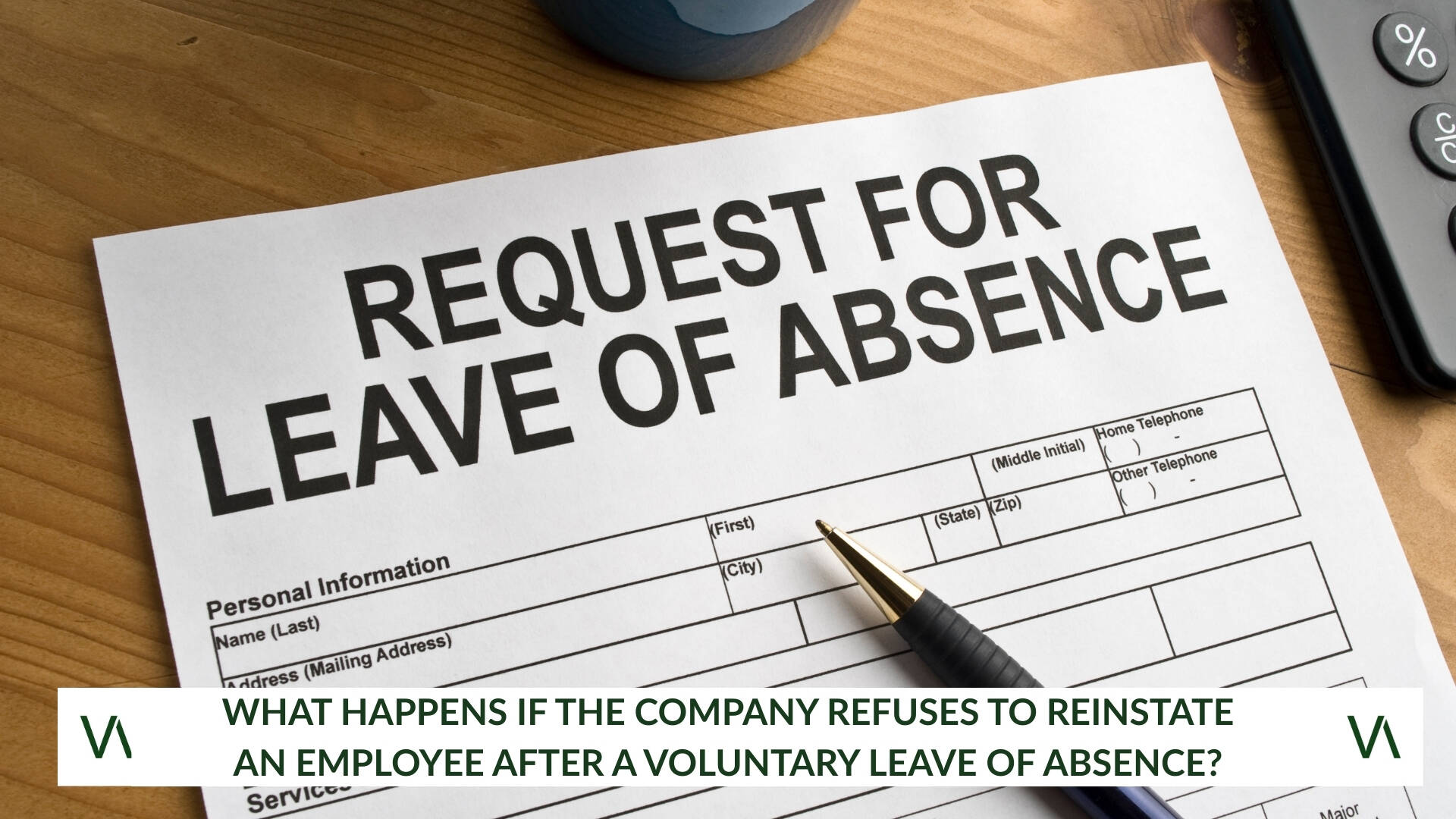What happens if the company refuses to reinstate an employee after a voluntary leave of absence?
Refusing to reinstate an employee after a voluntary leave of absence can have legal consequences. Although this type of leave does not guarantee job retention, it grants a preferential right to reinstatement. If a suitable vacancy exists and the company unjustifiably denies the request, it may be considered an unfair dismissal. Understanding your rights and acting within the legal timeframe is essential.

Voluntary leave allows an employee to temporarily suspend their employment relationship. However, it does not guarantee job retention, unless agreed upon through a collective agreement or individual contract. This can lead to disputes when an employee requests to return and the company denies it.
Preferential right to reinstatement
During voluntary leave, the employee has a preferential right to return, but not an automatic right. The company is only obliged to reinstate the employee if a suitable vacancy exists within their professional group. To assert this right, the employee must request reinstatement before the end of the leave period.
The company is not required to respond until the leave has ended. If a vacancy exists and the request is ignored or denied without justification, legal action may be taken.
Legal avenues
If the employee suspects there is a suitable vacancy and is not reinstated, they may initiate a legal process. It begins by submitting a conciliation request to the Mediation, Arbitration and Conciliation Service (SMAC). If no agreement is reached, a claim can be filed before the Labour Court to demand reinstatement and, if applicable, compensation.
Can it be considered dismissal?
Yes. If it is proven that the company unjustifiably denied reinstatement despite the existence of a vacancy, this can be classified as unfair dismissal. The employee may claim lost wages from the date reinstatement should have occurred until the court ruling, as well as compensation for damages.
Deadline to take action
The employee must file a claim for dismissal within 20 working days from the company’s denial. This deadline is strict and non-extendable, so timely action is essential to preserve rights.
Voluntary leave does not ensure reinstatement, but it does grant a preferential right if a vacancy exists. In case of unjustified refusal, the employee can pursue legal action. Knowing your rights and acting within the legal timeframe is essential to safeguard your position.RELATED CONTENT
-
Should you buy or rent the machinery or assets of the company?
When facing the renewal of machinery or equipment, many companies consider whether it is better to buy or rent. Although renting is often associated with an expense without return, this formula can offer strategic advantages, especially in changing contexts or with variable needs.
-
Provisional increase of the maximum base, MEI and solidarity contribution in 2026
The Ministry of Inclusion, Social Security and Migrations has published for public consultation the contribution base order of the Social Security for 2026. Although provisional, the document confirms a new increase in the maximum base, the continuity of the Intergenerational Equity Mechanism (MEI) and the solidarity contribution on high salaries.
-
How will Artificial Intelligence impact employment... and what your company should do right now
A recent study by the VRAIN Institute (UPV) confirms what many of us suspected: Artificial Intelligence will transform between 18% and 22% of jobs in Spain, depending on the province. This is not a distant prediction, but a direct warning to companies that have not yet begun to plan their digital and organizational transition.
